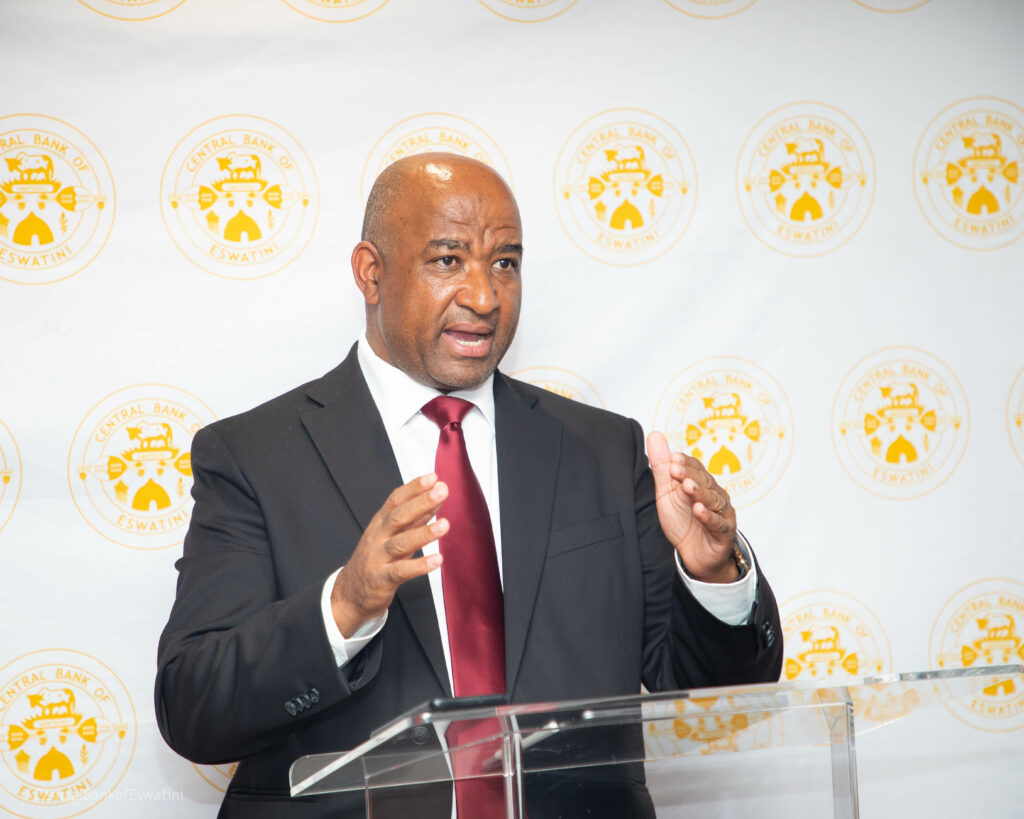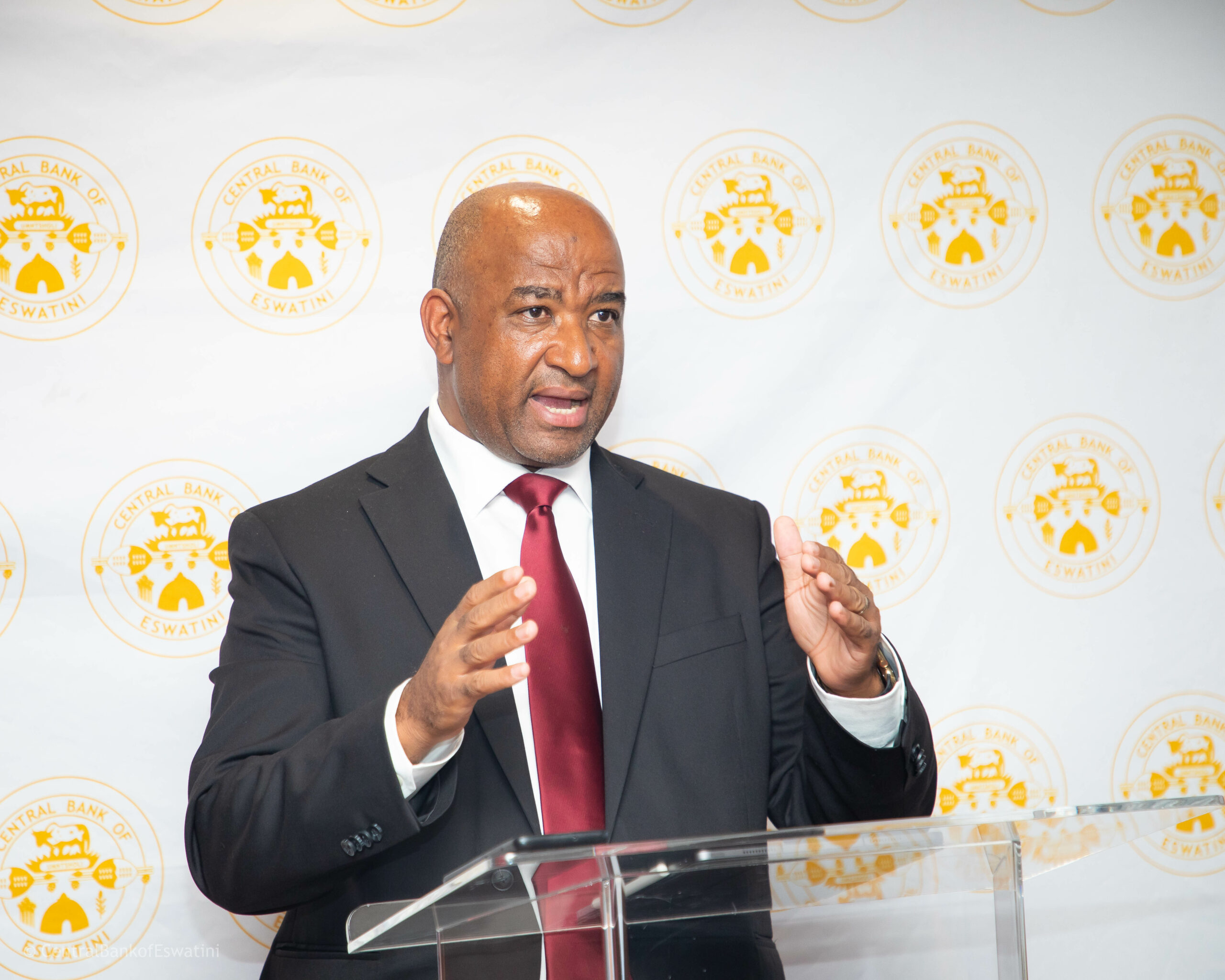
By Ntombi Mhlongo
Despite the inflation rate going down, there is no guarantee that interest rates will go down as well. The Central Bank of Eswatini (CBE) increased the interest rate to 6.5 per cent from 6 per cent.
Headline inflation decreased to 5.5 per cent in October 2022 from 6.7 per cent in the previous month. This means that banks are expected to increase the prime lending rate on loans extended to individuals and businesses to 10.0 per cent until the next monetary policy meeting.
During a session with the media after presenting the monetary policy statement, CBE Governor Dr Phil Mnisi provided a proper analysis, explaining the dynamics of inflation and the impact on the interest rate.
The Governor was responding to a question posed by Eswatini Financial Times Editor Sifiso Sibandze who sought clarity on whether the interest rate can go down in the next coming months following that the country’s inflation has gone down.
Mnisi first addressed a question on the policy decisions taken by the CBE to mitigate the effects of the Covid-19 pandemic and the impact they now have on the aggressiveness of the monetary policy.
The Governor said: “Not only in Eswatini but the world over, there was a policy decision taken by the central banks in order for people to pull through during those difficult times and we also did the same. Those were measures that we implemented as a country”.
He explained that once a huge inflow of liquidity is brought into the financial system of an economy, it fuels inflation which is exactly what is happening globally.
“It then becomes necessary to take drastic decisions. Right now prices are going up and the savings of the poor are being eroded by inflation, therefore, you push up the interest rate to help those savings not to be eroded because if you are putting E10, inflation is going up by let’s say 10% and you are getting an interest rate of 4%, it means you are getting a net negative of 6%. So, by upping the interest rate, we are trying to protect those savings and at the same time push down prices so that there is limited access of money and then prices do not continuously go up,” he explained.
Putting it in simpler terms, he said it is a cocktail of fundamental monetary principles of both micro and macro that informs the position of raising interest rates. Coming to the issue of a possible decline of the interest rates, he said as a Governor he would not want to commit because the financial system was a dynamic environment.
“That is why when we read the policy statement it gives a comparison and outlook plus it also shows that some of the outlooks we made have not been realised. So it is quite difficult to say we will be seeing a decline in interest rates in the first or third quarter that is why the statement says that it remains the mandate of the CBE to react as we see changes in the economy both globally, regionally, and domestically.”
However, the Governor said one of the indicators that should give guidance is the inflation forecast of 4.8 per cent that the CBE presented this year. This, he said, means that inflation is projected to come down which again can inform the decision to be taken by the CBE.
…Research to determine readiness for digital currency
The readiness of the Kingdom of Eswatini to start using digital currency will be informed by research that is currently being conducted by the Central Bank of Eswatini. Mnisi said the CBE wants to be innovative and respond to the technologies taking place globally and not be behind the curve.
He said the conversations of cryptocurrencies, crypto assets, FINTECH, use and movement of money facilitating speed of payment, protection of currency, and financial measures to ensure stability are primary objectives of CBE.
“The world over is looking at the reality that there are crypto assets and currencies, how do we as CBE respond to having a currency that is backed by the CBE reserves? Against this background, the CBE is now carrying out research, to see whether we are now ready to introduce digital currency. We are at the research stage to see if we can have Lilangeni in electronic form,” the Governor said.
Elaborating, he said the CBE is working with a consultant who is helping to ascertain if the economy, exchange of money, and financial inclusion can be promoted if digital currency is introduced.
Mnisi said the digital currency of the CBE will look into how the Kingdom of Eswatini and the stakeholders involved can work together, especially in the common monetary area since there is Lilangeni, the Rand, Maluti, and Namibian currencies which are pegged to the South African Rand.
“Broadly, we are responding to technology, and innovation while ensuring that we do not want to cause instability in the financial system of the country,” he explained.
…CBE doing its part to advise on high bank charges
Central Bank of Eswatini Governor Dr Phil has said that the institution does play an oversight role when it comes to the review of charges by banks.
The Governor was addressing an issue on what is being done to protect low-income earners from rising inflation and cost of living. The Governor mentioned that the policy statement addressed exactly the interests of the low-income earners as it is not aggressive despite that the country’s trading partner, South Africa, increased its rates.
“What we are also doing is encouraging banks to make more products, as many as possible, especially those that help the nation. We want our banking sector to have a wider reach. Regarding the issue of the cost of maintaining a bank account, the CBE now works with banks, so now when banks introduce or review bank charges, they submit them here at the CBE, and we look at them and engage. We are not necessarily prescriptive because the banks themselves are operating in an open economy so we cannot be seen to be overregulating them, but we give guidance so that the banking is made accessible,” the Governor said.
Also, the Governor said the CBE also encourages banks to ensure that there are saving products that target low-income earners to encourage them to save because the belief is that a saving culture leads to an investment culture.
“We engage the banks, but we are not prescriptive to the banks which is good practice in an open economy like ours,” he said.






